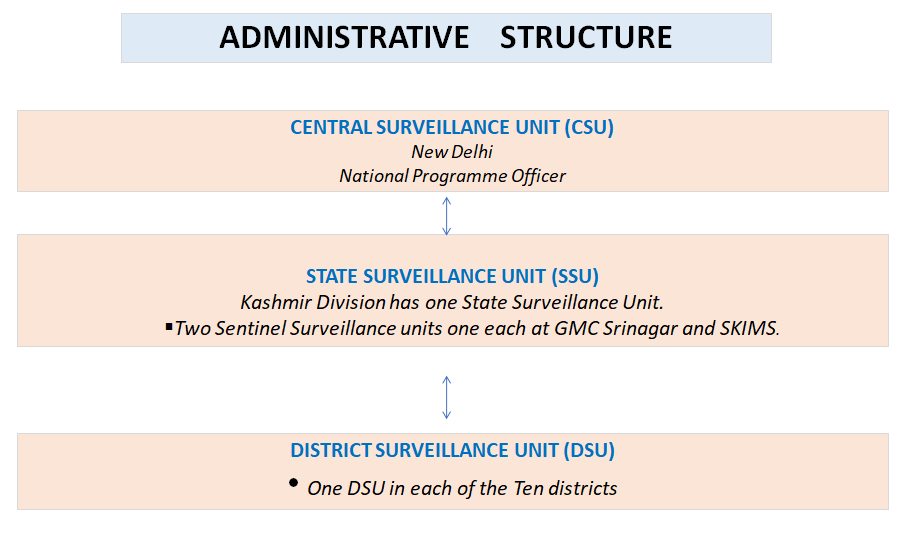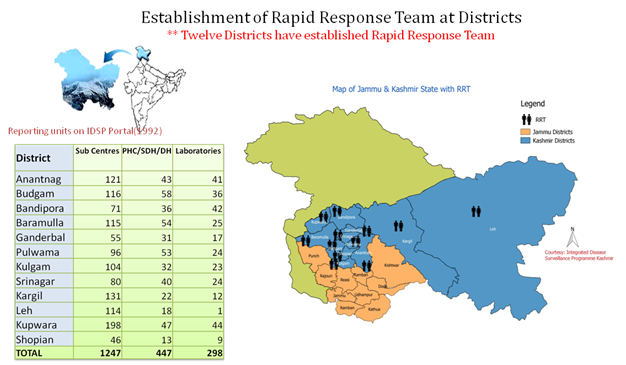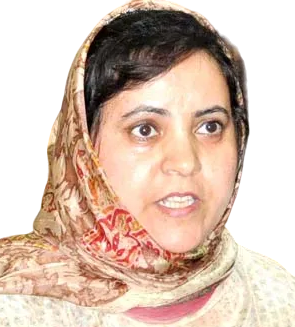- IDSP is a Decentralized District-based System of weekly surveillance for communicable Diseases so that timely and effective Public Health actions can be initiated in response to the incidence of Disease Outbreaks in the urban and rural Areas.
- Started in Jammu & Kashmir during FY 2006-2007 under NSPCD (National Surveillance Programme for communicable Diseases).
- The Integrated Health Information Platform is a web-enabled near-real-time electronic information system that is embedded with all Information Technology (IT) systems to provide state-of-the-art single operating picture with geographical information for managing disease outbreaks and related resources.
- Initially, IDSP Portal was designed for weekly based reporting of data on portal with only 13 health conditions were monitored.
- IHIP is designed to:
- Capture real-time or daily surveillance data through electronic devices; Tablets, Desktops, Mobiles.
- Provide analysis on mobile and electronic devices.
- Monitor more than 33+ health conditions.
In J&K UT, IHIP was launched in April 2021, and reporting was started. On 1st Oct 2021, the complete migration from old portal to IHIP portal was done and old IDSP portal was stopped for reporting. Presently, IHIP is the portal of IDSP that is reporting.
Objectives
- To Detect early warning signals of impending outbreaks.
- To Integrate, Co-ordinate and Decentralize surveillance activities
- To establish system for quality Data collection, Reporting, Analysis and Feedback using IT.
- To improve Laboratory Support for disease surveillance
Responsibilities
- Strengthening of Epidemiological capabilities at State and District level by training of District RRT and Health personnel at the periphery.
- Modernization and Computerization of State & District Epidemiology cell.
- Strengthening of State / District Laboratories.
- Improving Sub-District Mobility and Communication.
- IEC Activities.
Expected Outcome
- Early Detection of Outbreaks.
- Early Institution of Containment Measures.
- Reduction in Morbidity & Mortality.
- Minimize Economic loss.
Administrative Structure

Rapid Response Force

Laboratory Surveillance of Communicable Disease
Testing Facility :
- District Priority Laboratory DPL, JLNM Hospital, Srinagar
- District Priority Laboratory DPL, Anantnag
- District Priority Laboratory DPL, Baramulla
- District Priority Laboratory DPL, Budgam
- District Priority Laboratory DPL, Kupwara
- District Priority Laboratory DPL, Pulwama
- District Priority Laboratory DPL, Shopian
Acute Respiratory Infection (ARI) - Inf. A, B, Inf. A H1N1,Measles,Chicken pox, Acute Respiratory,Diphtheria,Pneumonia,Meningococcal Meningitis
Water Borne Disease- Enteric Fever,Hepatitis A,E, Diarrhea, Dysentery,Typhoid Fever,Cholera,Fever of Unknown origin
Vector Borne Disease-
Dengue,Malaria,Zika Virus,Chikungunya,JE
Surveillance during Disasters- Floods, Earthquakes
Hospital Infection Control- for control of Nosocominal infection
Water Quality Monitoring- To check the contamination of drinking water









